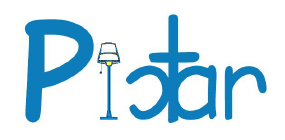The expansion of the Information and Communication Technologies and the boom of the so-called Information Society are pushing our culture towards a digital environment that is being extended in a progressive and transversal way across all daily life perspectives, from how we organize our work to how we establish social relationships. However, this digital environment represents an insurmountable barrier to certain groups of people. This could be the case of people with functional diversity or disabilities who cannot use the digital technologies as they currently exist. Sadly, this can push them to a state of social exclusion difficult to overcome. The future of our society depends on how we cope with this challenge guaranteeing the principle of universal accessibility for people with disabilities, enabling citizens with full and equal rights and fully functional inside our Information Society.
The goal of the IDiLyCo project is to facilitate the communication and information access in the digital world to groups of people that, due to their functional diversity, can find problems when using natural language to communicate with other people or to access to digital information. The project builds from previous experiences in related fields, and aims to create technological solutions that allow, in a simple and highly configurable way, the digital inclusion of people with some disability. For that, firstly, the research fields of accessibility and natural language processing and generation will be explored more deeply in order to produce improvements in digital inclusion. In particular, we will focus on text simplification (that automatically or semi-automatically rewrites complex texts in a simpler way), summarization (that identifies the more important components from a text and combines them in a more concise version of the same original text), augmentative and alternative communication (that, through alternative systems, facilitate the communication to users with some functional diversity) and sentiment analysis (that identifies whether a text can be ambiguous from an emotional point of view). All these fields are active research lines at national and international levels, with very promising results but with a limited impact on digital inclusion.
On the basis of this research progress, the project will be centred in bringing these advanced techniques closer to the end users through a twofold approach: (1) an ecosystem of services oriented to facilitate the digital inclusion of people with functional diversity; (2) two highly configurable applications that use the previous services to suit the needs of particular users: one for the communication through digital means, and another one to facilitate the access to digital information.

This approach will allow, on the one hand, that users with functional diversity can use tools adapted to their personal needs, because our applications will allow each user to decide which services they need and how they must be configured. On the other hand, the designers and programmers of new tools that wish to allow the digital inclusion of disabled people will be able to integrate our services in their implementations, thus saving an enormous cost on research and development of these accesible technologies.
As a result of our work in text simplification for people with special needs the following resources have been developed:
